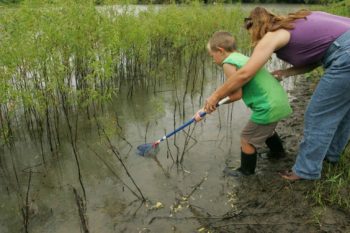Care for Your Child by Caring for Yourself
 Parents ensure that their children get enough sleep, make healthy food choices, and are ready to learn. Parents must also consider what they need to do for themselves for self-care. We are our children’s first and primary teachers. We should model the healthy lifestyle that we want our children to follow.
Parents ensure that their children get enough sleep, make healthy food choices, and are ready to learn. Parents must also consider what they need to do for themselves for self-care. We are our children’s first and primary teachers. We should model the healthy lifestyle that we want our children to follow.
Summarized below are some effective tips for you to practice: [Read more…]


 It is difficult when we see our middle and high school children disengaging with school. They could be struggling academically, socially with their friends, or in their relationships with their teachers. Possibly, something going on at home may be weighing on their mind and causing them to lose focus. This disengagement sometimes reveals itself as problematic behavior. When the behavior is addressed in a punitive way without looking deeper for the reason behind it, behavior will get worse.
It is difficult when we see our middle and high school children disengaging with school. They could be struggling academically, socially with their friends, or in their relationships with their teachers. Possibly, something going on at home may be weighing on their mind and causing them to lose focus. This disengagement sometimes reveals itself as problematic behavior. When the behavior is addressed in a punitive way without looking deeper for the reason behind it, behavior will get worse. Over the years, my kids and I have participated in a number of community service opportunities as a family. Whether it be collecting canned goods for the local food pantry, cleaning up a local school, or raising money for animal conservation, there are a number of excellent activities suited for children. The experience of serving others and the world at large have given my children a perspective about their place in the world, namely that even though they are young, children can still make a difference.
Over the years, my kids and I have participated in a number of community service opportunities as a family. Whether it be collecting canned goods for the local food pantry, cleaning up a local school, or raising money for animal conservation, there are a number of excellent activities suited for children. The experience of serving others and the world at large have given my children a perspective about their place in the world, namely that even though they are young, children can still make a difference. The Three-Hour Grandma Play Dates!
The Three-Hour Grandma Play Dates! Yo, como madre, quería que mis hijos crecieran a ser adultos independientes y capaces. Criar adultos independientes y capaces empieza desde la niñez. Hasta los niños de dos años piden, “¡Yo puedo!” cuando les tratamos de ayudar. El proceso continua hasta que nuestros hijos dejan la casa.
Yo, como madre, quería que mis hijos crecieran a ser adultos independientes y capaces. Criar adultos independientes y capaces empieza desde la niñez. Hasta los niños de dos años piden, “¡Yo puedo!” cuando les tratamos de ayudar. El proceso continua hasta que nuestros hijos dejan la casa.